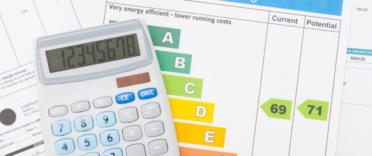 If you are planning to buy or sell a house, you will be interested to know what is likely to happen to house prices and whether now is a good time to move. Whether you already own a property or are a first-time buyer, an adjustment in house prices can be beneficial. A drop in price in the area you wish to buy in can save you money, whereas a rise in your current property's value means you can secure a good price and have more capital to invest in your next purchase.
If you are planning to buy or sell a house, you will be interested to know what is likely to happen to house prices and whether now is a good time to move. Whether you already own a property or are a first-time buyer, an adjustment in house prices can be beneficial. A drop in price in the area you wish to buy in can save you money, whereas a rise in your current property's value means you can secure a good price and have more capital to invest in your next purchase.
House prices are determined by a number of factors, including:
- The overall health of the economy - The unemployment rate and wage growth both play a part in consumer confidence, which impacts how confident people are to move and how much they are willing to pay.
- Interest rates -The Bank of England sets the base interest rate level and, if it is relatively low, people can afford to spend more on a property as the cost of borrowing is lower. This tends to push house prices up. Conversely, once rates start going up, mortgages become more expensive and house prices tend to fall as fewer people opt to move.
- Supply and demand - Local house prices will be determined by how desirable a particular location is and how many similar properties are available. If, for example, a new housing development is completed, this can reduce the value of properties nearby as there is greater competition for buyers. Conversely, some properties will always command a premium because they are in a sought-after area where the housing stock is limited.
What has been happening to house prices?
There are a number of respected sources of data relating to house prices, including monthly indices that provide information on house price changes over the previous month and over the preceding 12 months. Below is a summary of each published index.
The UK House Price Index
The UK House Price Index is the most accurate of the various house price indices as it is calculated based on completed sales, both for cash sales and those with a mortgage. The wide-ranging data is sourced from HM Land Registry and other government sources. However, while it gives a very clear picture of what is going on in the housing market, there is a lag in the data being published. The latest data currently available relates to October 2024.
It shows that the average house price in the UK currently stands at £292,059. The annual house price change is at 3.4% in the 12 months to October 2024.
| UK House Price Index | October 2024 | September 2024 | August 2024 | July 2024 | June 2024 |
|
Monthly change |
0.2% | -0.3% | 2.8% | 0.6% | 0.5% |
|
Annual change |
3.4% | 2.9% | 1.5% | 2.2% | 2.7% |
|
Average house price |
£292,059 | £291,828 | £293,000 | £289,723 | £288,000 |
Get a FREE mortgage review
Our partner Vouchedfor will help you get the best mortgage rate with a free mortgage review
- From a 5-star rated mortgage adviser
- Typically save £80 per month per £100,000 of your mortgage
- No obligation
Nationwide House Price Index
The Nationwide House Price Index is calculated based on its own data on mortgage approvals. House prices rose by 0.7% in December 2024, when compared with the previous month (based on the 'seasonally adjusted' figure). The annual change in house prices currently stands at 4.7%.
Nationwide said "Mortgage market activity and house prices proved surprisingly resilient in 2024 given the ongoing affordability challenges facing potential buyers. At the start of the year, house prices remained high relative to average earnings, which meant that the deposit hurdle remained high for prospective first-time buyers. This is a challenge that had been made worse by record rates of rental growth in recent years, which has hampered the ability of many in the private rented sector to save.
“Moreover, for many of those with sufficient savings for a deposit, meeting monthly payments was a stretch because borrowing costs remained well above those prevailing in the aftermath of the pandemic. For example, a typical mortgage rate for someone with a 25 per cent deposit hovered around 4.5% for much of the year, three times the 1.5% prevailing in late 2021, before the Bank of England started to raise the Bank Rate.
“As a result, it was encouraging that activity levels in the housing market increased over the course of 2024 with the number of mortgages approved for house purchase each month rising above pre-pandemic levels towards the end of the year"
| Nationwide House Price Index | December 2024 | November 2024 | October 2024 | September 2024 | August 2024 |
|
Monthly change in house prices |
0.7% | 1.2% | 0.1% | 0.6% | -0.2% |
|
Annual change |
4.7% | 3.7% | 2.4% | 3.2% | 2.4% |
|
Average price |
£269,426 | £268,144 | £265,738 | £266,094 | £265,375 |
Halifax House Price Index
The Halifax House Price Index is calculated from its own database of approximately 300,000 mortgage approvals. Recent data reveals that average house prices fell 0.2% in December, following a modest rise of 1.3% in November. December's figures reveal an annual change of +3.3%.
Halifax said "The housing market was broadly steady at the start of 2024, with house price growth taking off from the summer onwards. In the latter half of the year, house prices grew in response to the falls in mortgage rates, alongside income growth, both leading to financial pressures somewhat easing for buyers. Impending changes to Stamp Duty thresholds have also given prospective first-time buyers even greater motivation to get on the housing ladder and bring any home-buying plans forward. Together, these elements meant mortgage demand picked up, hitting the highest level in over two years and back to levels seen pre-pandemic".
| Halifax House Price Index | December 2024 | November 2024 | October 2024 | September 2024 | August 2024 |
|
Monthly change in house prices |
-0.2% | 1.3% | 0.2% | 0.3% | 0.3% |
|
Annual change |
+3.3% | +4.8% | +3.9% | +4.7% | +4.3% |
|
Average price |
£297,166 | £298,083 | £293,999 | £293,399 | £292,505 |
Rightmove House Price Index
Unlike the other indices that are based on mortgage approval data or completed sales, the Rightmove House Price Index looks at the average asking prices for properties listed on the Rightmove portal. This is a good reflection of sellers' confidence but doesn't clearly demonstrate how many of those properties end up going under offer at a much lower price or, in fact, don't end up selling at all. Its most recent data shows that the average asking price fell 1.7% in December, which follows a fall of 1.4% in November.
Rightmove said "Looking at our data and the UK’s underlying housing needs, there are lots of reasons to be positive about next year (2025). However, as we’ve seen several times this year (2024), the market is sensitive to unexpected events and the direction of travel can change. The stamp duty changes are a cloud over the market at the moment, with some groups much more impacted than others, and therefore keen to avoid the additional charges. After the important first three months of the year in 2025, a lot depends on how quickly normal activity is resumed with higher stamp duty in England. A Bank Rate cut and some mortgage rate falls early on in the year would help to settle the market and provide a boost to sentiment and consumer confidence".
| Rightmove House Price Index | December 2024 | November 2024 | October 2024 | September 2024 | August 2024 |
|
Monthly change |
-1.7% | -1.4% | 0.3% | 0.8% | -1.5% |
|
Annual change |
-1.4% | 1.2% | 1.0% | 1.2% | 0.8% |
|
Average asking price |
£360,197 | £366,592 | £371,958 | £370,759 | £367,785 |
What is driving the change in house prices?
The housing market has been tumultuous over the past 2 years, with the pandemic having a direct impact on house prices. Initially, there was a slump as the country entered into lockdown for the first time in March 2020 before a massive resurgence from June 2020, when society began opening up again. A key driver was the introduction of a temporary stamp duty holiday on 8 July 2020, which offered buyers a saving of up to £15,000 on their tax bill when purchasing a house. This acted as a stimulus, ironically driving house prices up by an average of £15,409 between June and November 2020, according to figures from the Halifax, in effect wiping out the stamp duty saving.
The main stamp duty holiday ended at the end of June 2021, with a tapering until the end of September 2021, during which time buyers could save a maximum £2,500 off their bill. There was a corresponding uptick in house prices in the run-up to the deadlines for the end of each of these phases and, overall, there was double-digit annual growth across 2021. This was bolstered by historically low mortgage rates, as well as the reintroduction of higher loan-to-value mortgage deals.
However, the mini-Budget presented by former Chancellor Kwasi Kwertang on 23rd September 2022 sent shock waves through the mortgage market resulting in a rapid increase in mortgage interest rates. In August 2024, the Monetary Policy Committee (MPC) voted to cut interest rates to 5.00%, having kept rates at 5.25% for the previous seven meetings (September, November, December, February, March, May and June). In November 2024, rates were cut by a further 0.25%, meaning the Bank of England base rate currently stands at 4.75%
Markets had predicted another rate cut before the end of the years and so many of the major lenders had already priced these in when releasing their latest mortgage deals. It means average fixed-rate interest rate deals are likely to remain at around 5.0% to 6.0% for the next few months.
As well as tightening lending criteria mortgage lenders are also stress-testing mortgage applications assuming rates as high as 8%. Higher mortgage costs will likely mean that there will be fewer prospective purchasers able to secure a mortgage thus putting downward pressure on house prices. In 1992 the average house price fell by about 20% following a rapid rise in the Bank of England base rate. Also, bear in mind that the cost of living crisis will likely mean more people will fail lenders' affordability assessments going forward which will be another headwind for the property market.
Is now a good time to move house?
With the Bank of England opting to increase the base rate several times in recent meetings, borrowing has become more expensive, limiting the amount you can secure for your house purchase.
With house prices still at elevated levels, we could continue to see them trending downwards over the coming months, which, if you are a first-time buyer or moving to a new area, could save you money if you decide to wait. If, however, you are a mover and have to sell your current property, it may pay to make the most of the tail-end of this recent house price boom.
Anecdotally, estate agents are reporting there are still significant numbers of people looking to move with demand outstripping supply but this could change. This means buyers have to remain quick-thinking and decisive when house-hunting.
How do I know what my property is worth?
While it is useful to consider the broader market trends for the UK, it's also important to work out what is happening in your local area if you are planning to buy or sell a property. There can be a great deal of variation in the price of a house on one street compared to the same style of house on an adjacent street, so it pays to do your homework. Good sources of information include:
- Property websites - Sites such as Rightmove and Zoopla have features that give you an estimate of what your house is worth based on its sales history and what other local properties have sold for. These tools are not completely accurate but give you a good starting point to work out how much you could reasonably expect to sell your house for
- Land registry data - It is possible to access the sold prices for all the properties in your local area, sorted by how long ago the property sold. This gives a good indication of what properties are actually selling for, compared with the asking prices that they are being marketed at.
- Estate agent - A good local agency with properties on its books similar to the one you are trying to sell will be able to give you the best idea of what you are likely to be able to sell your property for. It is a good rule of thumb to get valuations from a few different agents as there could be some variation in the valuations they provide. Read our article: How to find the best & cheapest local estate agent in seconds.






